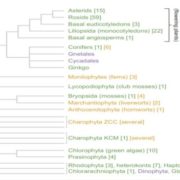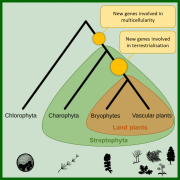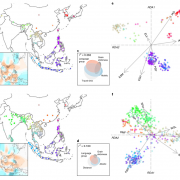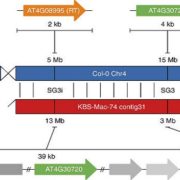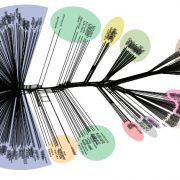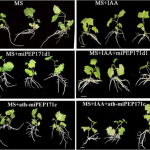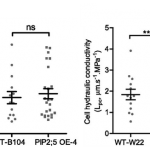Structural evolution drives diversification of the large LRR-RLK gene family (New Phytol)
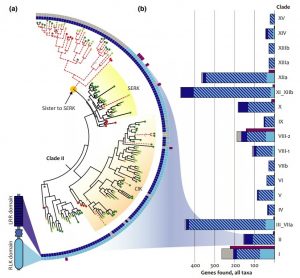 Leucine-rich repeat receptor-like kinases (LRR-RLKs) act as signaling receptors, are the largest plant-specific protein kinase family, and are involved in myriad developmental activities and defense systems. Due to the large number of proteins in this group, their diversification and consequent redundancy have made it difficult to functionally characterize single mutants. To circumvent this issue, Man et al. took a large phylogenetics approach and characterized LRR-RLKs from Arabidopsis thaliana, Amborella trichopoda, Brachypodium distachyon, Oryza sativa, Solanum lycopersicum, Populus trichocarpa, Selaginella moellendorffii, Physcomitrella patens, and Zea mays. This approach revealed new LRR-RLK genes previously uncharacterized, and corrected the classification of this large family of proteins. Most importantly, this work demonstrated the promising way for gene discovery and classification of larger and complex families. (Summary by Arif Ashraf @aribidopsis) New Phytol. 10.1111/nph.16455
Leucine-rich repeat receptor-like kinases (LRR-RLKs) act as signaling receptors, are the largest plant-specific protein kinase family, and are involved in myriad developmental activities and defense systems. Due to the large number of proteins in this group, their diversification and consequent redundancy have made it difficult to functionally characterize single mutants. To circumvent this issue, Man et al. took a large phylogenetics approach and characterized LRR-RLKs from Arabidopsis thaliana, Amborella trichopoda, Brachypodium distachyon, Oryza sativa, Solanum lycopersicum, Populus trichocarpa, Selaginella moellendorffii, Physcomitrella patens, and Zea mays. This approach revealed new LRR-RLK genes previously uncharacterized, and corrected the classification of this large family of proteins. Most importantly, this work demonstrated the promising way for gene discovery and classification of larger and complex families. (Summary by Arif Ashraf @aribidopsis) New Phytol. 10.1111/nph.16455


